Who is Behind the Vegetable Delivery to Bnei Brak? "I am Not Religious, but it Hurt Me"
Riki Lewit, who does not consider herself religious, brought a truck filled with agricultural goods to Bnei Brak, gathered from kibbutzim across the country. "I felt for the residents and wanted to show them that we care," she explains.
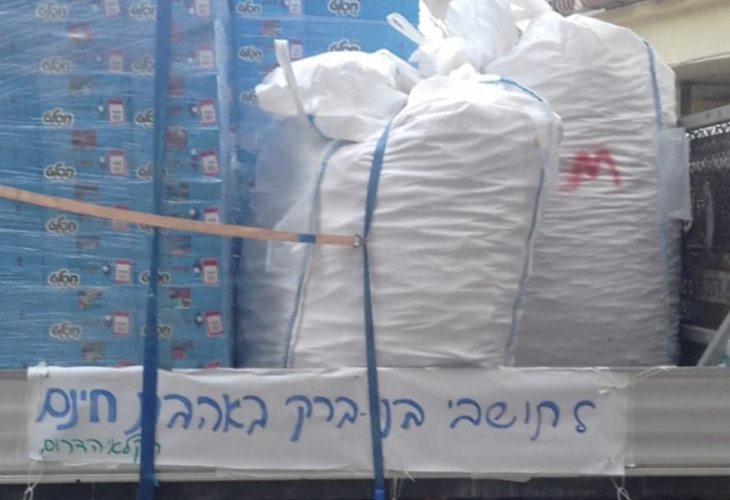
"I have had particularly terrible days in the past week," Riki Lewit tells me when I ask her what led her to bring a truck full of vegetables to the heart of Bnei Brak yesterday (Wednesday) and distribute the agricultural produce wholeheartedly and without charge to families living in the city.
"The vegetables are just a cover," she quickly clarifies, "my true goal was to do something for the residents so that they understand that we, the people who supposedly live on the other side, also think of them and are pained by what is happening to them in the city."
Riki emphasizes that she does not define herself as a religious woman. "In my day-to-day life, I have no connection to the Haredi sector. I live in the settlement of Tekoa and do not know the residents of Bnei Brak personally. I am an ordinary person, but it pained me that an entire community is demonized without any justification."
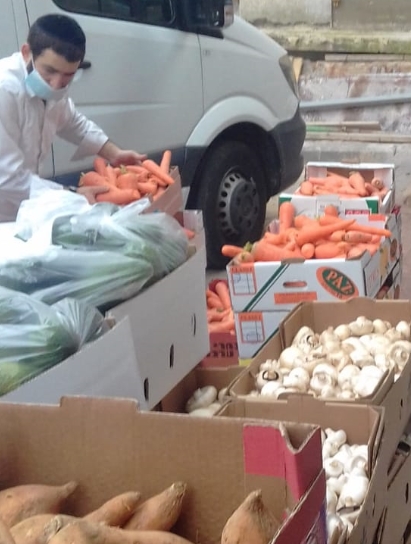
"I Just Wanted to Help"
I am holding a conversation with Riki in the evening, shortly after she finished distributing boxes of vegetables in Bnei Brak and returned home - exhausted but satisfied.
"The truth is, it's not the first time I've thought about how to help the residents of Bnei Brak," she reveals, "It started last year when the coronavirus broke out, and from the very first moment, I saw the media waging war and maligning an entire public, creating a sense as if the pandemic continues solely because of them. When Passover approached and I saw announcements of a strict lockdown in Bnei Brak, I felt it was inhumane. I imagined large families in small apartments in a besieged city and felt really bad. One morning everything just climaxed when I discovered headlines about 'fear of a humanitarian disaster in Bnei Brak'. At that moment, I shook myself and told my husband: 'Something must be done! It cannot continue like this. Let's invite Haredi children to our home and help them.'"
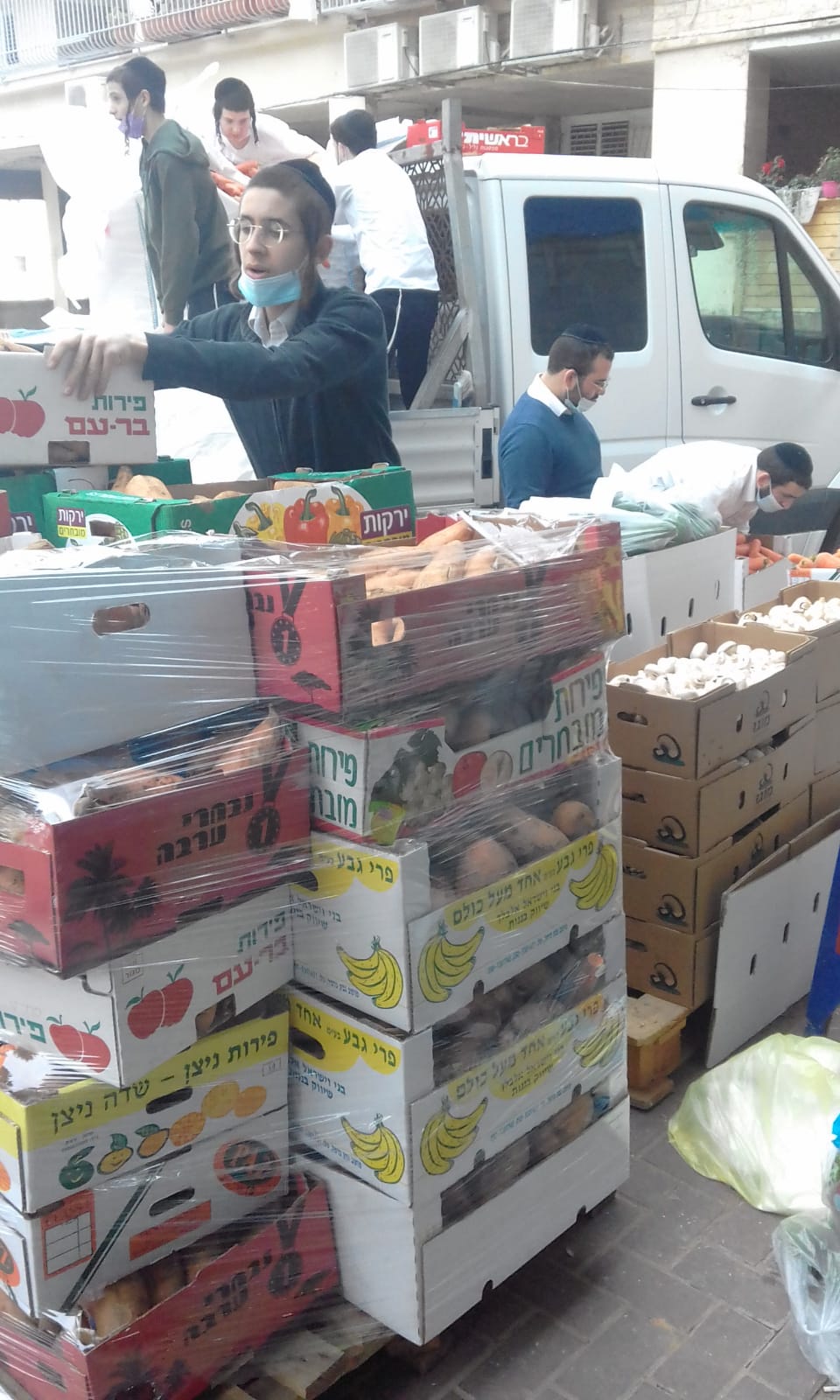
Riki takes a deep breath. The descriptions are clearly difficult for her, and she is reliving them. "My husband, of course, explained to me that my idea was not normal, and that led me to propose a different kind of idea. I said to him: 'Now it's the eve of the holiday, and it's already economically tough for people. I will bring them agricultural produce for the holiday. Already then, on the eve of Passover, I contacted farmers from all over the country—from Shefa-'Amr in the north to Eilat. I took a truck with a driver that one of the farmers donated to me and went out for a day of gathering goods. Many farmers along the way joined in to help, and so I collected the best of the Land of Israel."
How do you explain the fact that non-religious farmers decided to help the residents of Bnei Brak?
"That's exactly the point. There are many, many people in the secular public who love the Haredim and care about their well-being. There is a huge gap between what the media tells and what is actually happening. Although the initiative was mine, many people joined in who think like me."
"Why Just Slander?"
Yesterday, on the eve of Tu B'Shvat, Riki decided to repeat the initiative for the second time. This time, the trigger was the police assaults in Bnei Brak and the media once again painting the entire public as one trying to fight and riot. "The tipping point came when I heard grenades were thrown in the city streets," she notes. "I held my head and said to myself: 'This is not real.' I didn't understand what was happening to our country and how we got to such a state. For me, the Haredim are viewed as people with great sacrifice and kindness, with loyalty and dedication to their goals, people who are easy to talk to. So why reach such situations? I couldn't calm down."
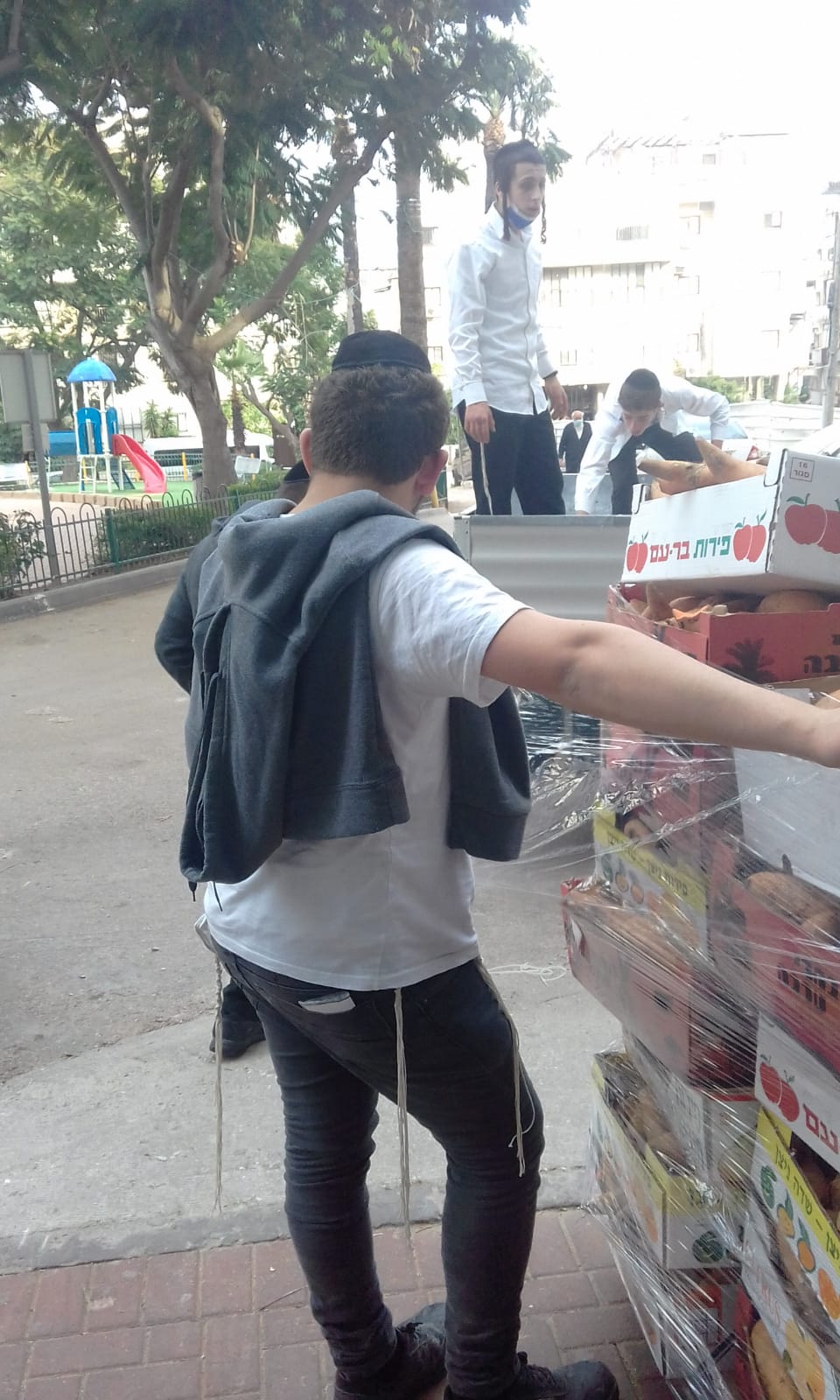
There are people who see how the media blackens the Haredim, and it causes them to feel hatred. How come you feel exactly the opposite?
"First of all, as I already mentioned, I'm not the only one. I can show you the number of 'likes' I've received—from kindergarten children to elderly people. People are sending me lots of warm messages, and I see that the act I did touched many non-Haredi audiences. This, to me, is an indication that the public is not completely brainwashed. Yes, I know what I did is exceptional, but maybe I'm really just a bit of an exceptional person. I'm not influenced by what others say; rather, I observe and choose my attitude towards society myself. Generally, I'm not a person of sectors and generalizations, and mainly, I don't take everything I'm told for granted. That's my nature."
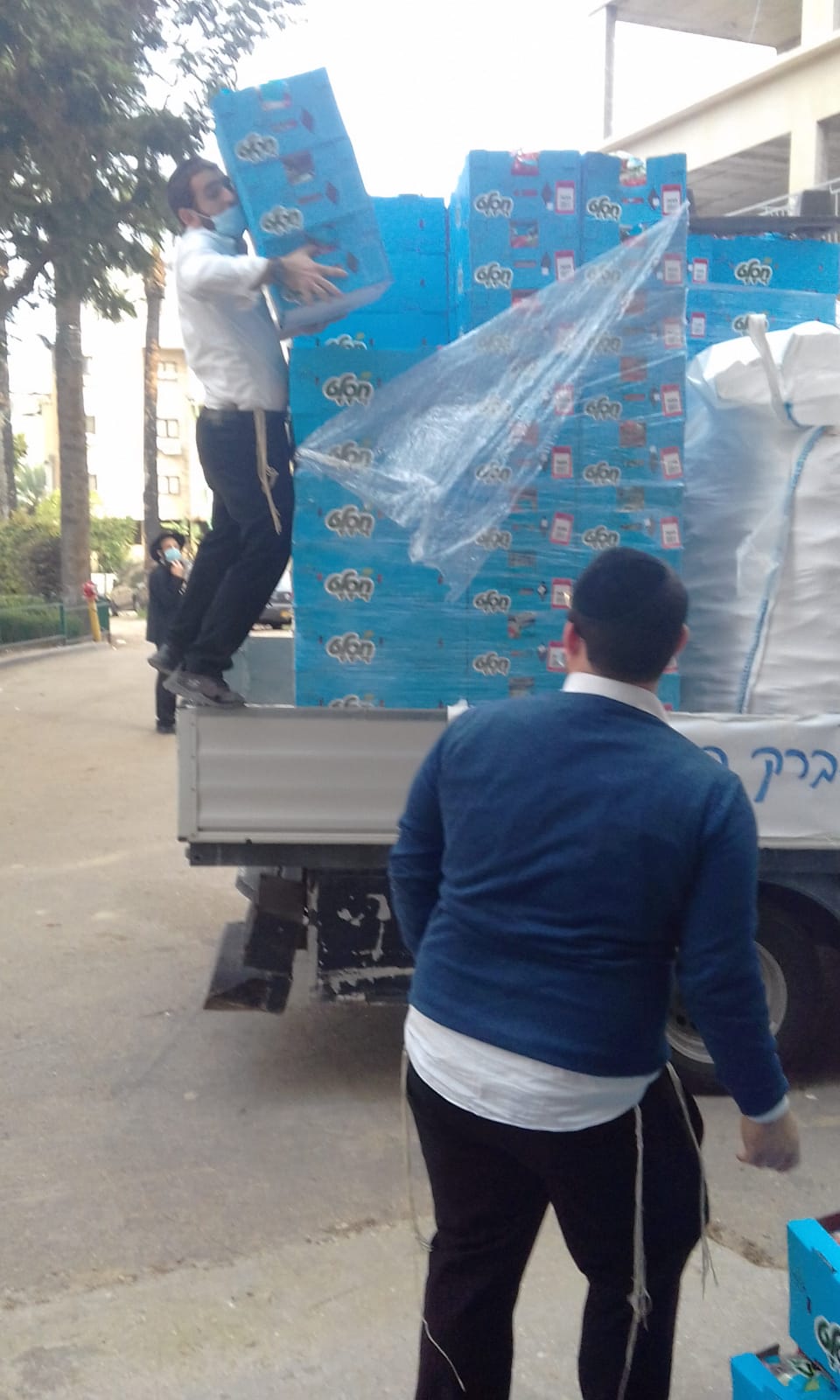
Your initiative requires a lot of logistics, especially these days. How did you manage to organize it?
"It is written in the Torah: 'When you go out to war... and Hashem your God will deliver them into your hands.' I felt I didn't need to act, because once I set out on the mission, everyone mobilized to help me. I quickly received all the necessary approvals, and in every kibbutz the truck visited, the farmers hurried to meet me and load the vehicle with much more than it could hold."
The last stop was, of course, in Bnei Brak, where Riki unloaded the goods. "It was so emotional to see the Bnei Brak residents gather around us asking for 'more avocados', 'more mushrooms', and enjoying the abundance of lettuce, carrots, and sweet potatoes. The produce we received was abundant and of the highest quality. People simply delighted."
Riki testifies that from the moment she left the city, she hasn't stopped receiving messages. "Here, just while we are talking, I've received 15 more messages," she tells me, reading some of them: "There's someone who writes: 'You are a wonderful woman and warm the heart.' Another woman, who introduces herself as a Bnei Brak resident, writes: 'How much we lack unconditional love! How heartbreaking what is happening outside... After a period that I was walking around with a stone in my chest, your noble act made me believe there is hope.' I also received feedback from the city spokesperson and even from the mayor. Many people noted that the city really dressed up for a celebration."
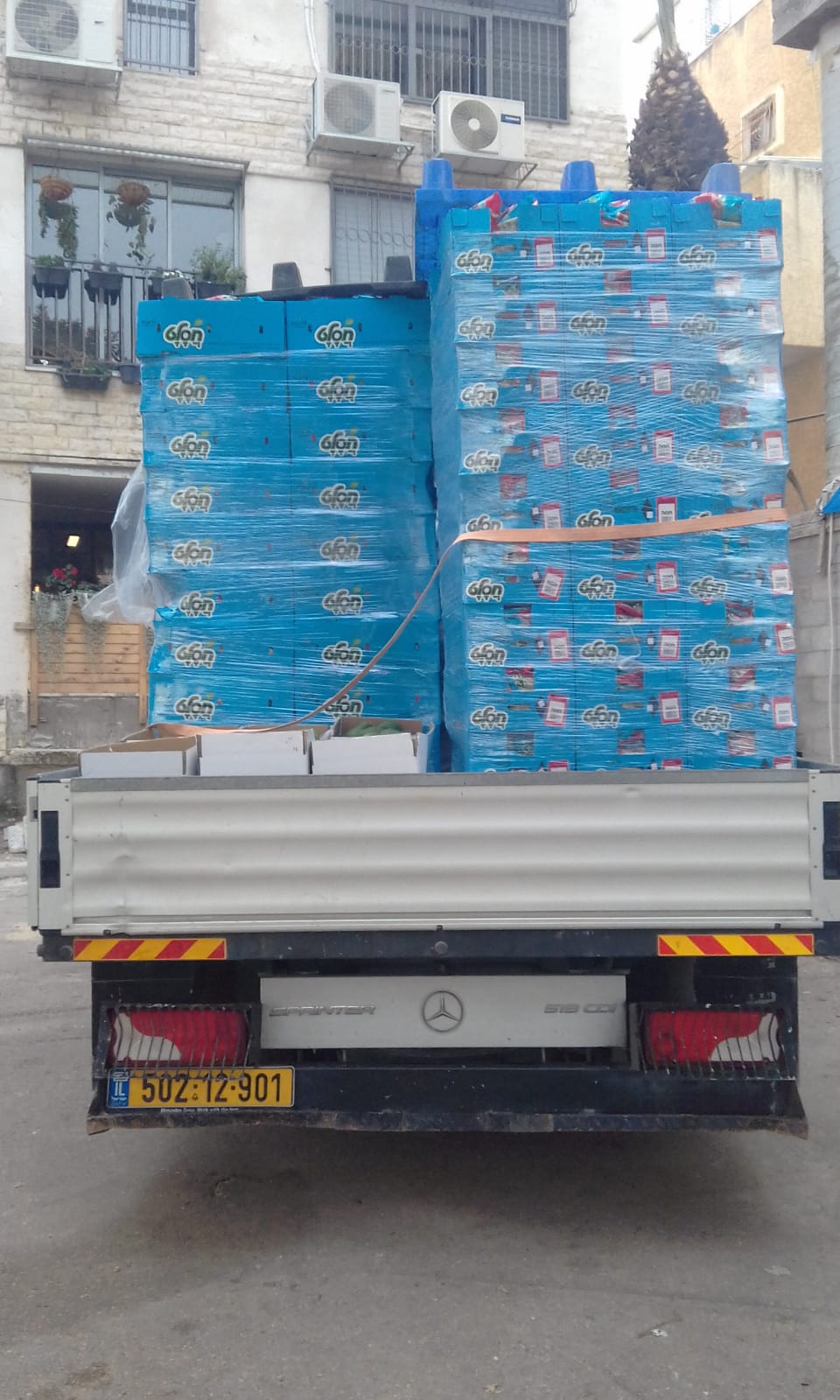
And this is understandable, there's no doubt that this act is amazing...
For the first time since the beginning of our conversation, Riki is silent for a few moments. "I am not an amazing person," she finally says, "I absolutely don't feel that way. I am just a person who, when they feel pain about something, tries to take action. That's all."

